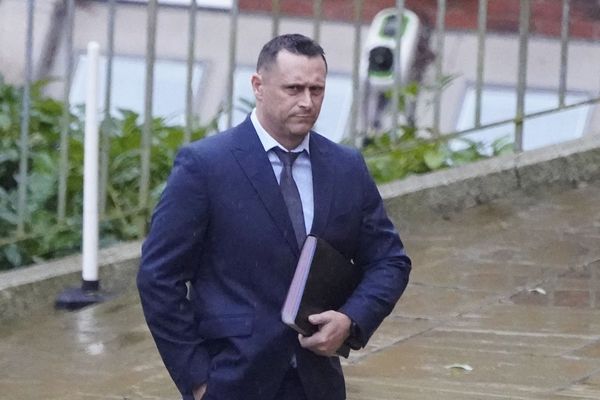
An estimated 430,000 Britons were still suffering from long Covid two years after first contracting the virus, according to data released by the Office for National Statistics.
One in every 32 people in the UK was estimated to have some form of long Covid at the end of July, equivalent to 2 million people. Of those, around 1.5 million said their symptoms were adversely affecting their daily activities, while 384,000 said their ability to undertake daily activities had been “limited a lot”.
Fatigue continues to be the most common symptom reported by individuals with long Covid, with 62% reporting weakness or tiredness. More than a third, 37%, of those surveyed reported shortness of breath as one of their symptoms, while difficulty concentrating (33%) and muscle ache (31%) were the next most cited symptoms.
Certain groups are at higher risk of long Covid than others. These include people aged 35 to 69, women, people living in more deprived areas, those working in social care, and those with another activity-limiting health condition or disability.
Kelly Fearnley, a foundation doctor at Bradford Royal Infirmary, said: “Long Covid is not only crippling the health of the nation, it is destroying the health of our economy.
“Research efforts so far have been slow and underfunded, and fail to reflect the scale and urgency of the problem.
“Not only are some people not recovering, they are deteriorating. People have not only lost their health and independence, they are losing their jobs, financial security and homes.”
The NHS has responded to the high number of long Covid patients by setting up clinics to assess, diagnose and treat them and refer them on to other services, such as cardiology departments for those with heart problems.
However, the Royal College of Nursing said in June that there were too few specialist clinics to handle the soaring demand for treatment, with only a small number of patients receiving help.
Prof Danny Altmann, an immunologist at Imperial College London and a trustee of the charity Long Covid Support, said provision in the form of long Covid clinics was “barely managing to scratch the surface of the needs for this huge new group of patients”.
“It’s impossible for us to emphasise sufficiently the extent to which the bitter legacy of Covid-19 is very much with us in the blighted lives of these long-hauler, long Covid sufferers. For many of these people, the consequences have been truly life-changing, in terms of lost ability to work in their former jobs, to get out of the house, or to do their former activities and hobbies.
“There really is an urgent need both for more research into potential treatments and for more clinical service provision.”
An NHS spokesperson said: “Since the pandemic began the NHS has invested over £220m on long Covid services, including opening 90 specialist clinics and 14 hubs for children and young people, so we urge anyone struggling with long-lasting symptoms after contracting Covid-19 to get in touch with their GP practice or visit the NHS Your Covid Recovery website for further advice.”
A spokesperson for the Department of Health and Social Care said: “We recognise that long Covid has debilitating impacts on hundreds of thousands of people’s physical and mental health”. Around £50m was being spent on research to understand the long-term effects of the virus and “ensure the right help and treatments are widely available”.







